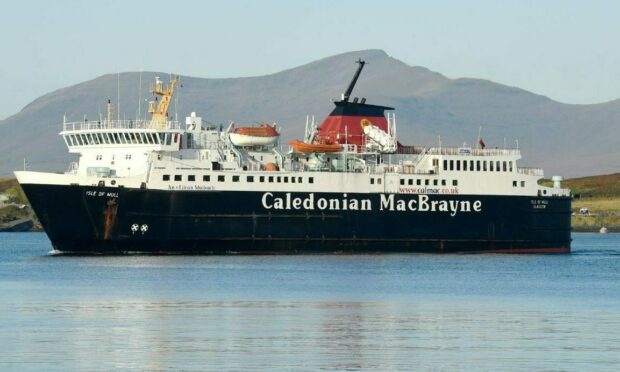The Ferries Communities Board has released a plea for more tonnage and for Western Isles voices to be heard in discussions regarding their “lifeline” ferry services.
Shortages have been plaguing ferry fleets to Scotland’s islands in recent years, with Covid, bad weather and ageing vessels forcing reduced timetables.
The ferries provide lifeline services and crucial supplies to island communities, who have often had to adapt to going without.
A recent plea by Ferries Communities Board said it was “essential” that more effort was made to increase services to these communities.
Transport Scotland stressed it acknowledges the need to reduce delays, explaining it had allocated £580million to address the issue.
Though the Ferries Communities Board has acknowledged the challenges posed by recent storms and the pandemic, it highlighted the true effects of the issues on locals.
“While we are well used to living with the effects of weather on our ferry services and more recently Covid the recent extent and duration of mechanical failures on multiple vessels has led to massive disruption right across the network,” said the group.
“Unfortunately this is unlikely to be a one-off with such an ageing fleet in our challenging environment. This represents a real threat to our islands’ ability to retain and attract people, ensure services are sufficiently reliable and at prices that permit viable communities and thereby avoid depopulation.”
‘Historic lack of investment’
The group called for a number of changes to the way the situation is being dealt with.
It said: “The issue of historic lack of investment has been highlighted and recognised over many years.
“While some progress has recently been made in terms of identifying the first stage of a capital budget for vessels and infrastructure, including ordering two new vessels for Islay and the purchase of new tonnage for Mull, recent events have demonstrated the need to do more and to do it quicker.
“It is essential we step up the efforts to find and purchase new tonnage. This should include the sourcing of freight tonnage for appropriate routes thus alleviating pressure and freeing up conventional ferry space for passenger traffic.”
They also said islanders should be a more central part of the decision making process, as it ultimately affects them most.
In response to this, a spokesman from Transport Scotland said: “Following the recent DML recruitment, the transport minister has asked as a priority that the new DML chair, considers and takes forward measures to ensure island representatives views are heard more directly on our boards.
“In addition, CalMac, CMAL and Transport Scotland regularly engage with island communities through ferry committees, the Ferry Communities Board, local groups and the local authorities.”
‘To the detriment of our islands’
According to the Ferries Communities Board, prolonged ferry shortages could be to the detriment of the whole country, forcing locals off the island and preventing new residents from moving there.
It explained: “Without a fit for purpose ferry service all efforts to sustain and grow population, encourage new business and provide equality of opportunity will be increasingly damaged – to the detriment of our islands and our country.”
Transport Scotland responded to this, noting the worry and highlighting the funding the government has committed to dealing with shortages.
A spokesman said: “Ministers recognise that a lack of confidence in ferry services can impact upon people’s decision on whether to live and work on the islands, and impacts upon the sustainability of the island communities themselves.
“These human impacts are at the heart of Scottish Ministers’ commitment to supporting lifeline services through continued investment in ferry services across Scotland.
“Ministers also fully recognise the need to address delays in investment in ferry infrastructure which is why they have committed to the £580 million in the Infrastructure Investment Plan.
“The MV Pentalina was considered for a possible time charter in 2021 although it was withdrawn from availability by its owner before the formal agreement was signed. Whilst we would not purchase the vessel we remain open to exploring the charter option further should this be reconsidered by the vessels owner.”
